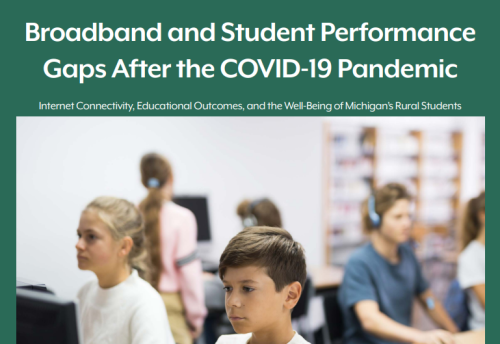The Chief Economist of the Federal Communications Commission is a temporary position—with a term of a year or so of late—typically bestowed on economists with impressive credentials and experience related to media or telecommunications. Having worked at the FCC long enough to overlap with several chief economists, I noticed an interesting pattern. Many join the FCC full of hope—capable as they are—that they will reform the agency to better integrate “economic thinking” into regular policy decisions, but to quote a former colleague, “leave the agency with their sense of humor intact.”
I have heard many a former FCC economist rail against the lack of economic thinking at the FCC, with some former chief economists going very much on the record to do so (for instance, see here and here). Others (not necessarily affiliated with the FCC) have gone as far as to point out that much of what the FCC does or attempts to do is duplicative of the competition policies of the Department of Justice and Federal Trade Commission. These latter points are not a secret. The FCC publicly says so in every major transaction that it approves.
For example, in a transaction that I have had the pleasure to separately write about with one of the FCC’s former chief economists and a number of other colleagues, AT&T’s acquisition of former competitor Leap Wireless (see here and here), the FCC wrote (see ¶ 15):
Our competitive analysis, which forms an important part of the public interest evaluation, is informed by, but not limited to, traditional antitrust principles. The Commission and the Department of Justice (“DOJ”) each have independent authority to examine the competitive impacts of proposed communications mergers and transactions involving transfers of Commission licenses.
This standard language can be found in the “Standard of Review” section in any major FCC transaction order. The difference is that whereas the DOJ reviews telecom mergers pursuant to Section 7 of the Clayton Act, the FCC’s evaluation encompasses the “broad aims of the Communications Act.” From a competition analysis standpoint, a major difference is that if the DOJ wishes to stop a merger, “it must demonstrate to a court that the merger may substantially lessen competition or tend to create a monopoly.” In contrast, parties subject to FCC review have the burden of showing that the transaction, among other things, will enhance existing competition.
Such duplication and the alleged lack of economics at the FCC has led a number of individuals to suggest that the FCC should be restructured and some of its powers curtailed, particularly with respect to matters that are separately within the purview of the antitrust agencies. In particular, recently, a number of individuals in Donald Trump’s FCC transition team have written (read here) that Congress “should consider merging the FCC’s competition and consumer protection functions with those of the Federal Trade Commission, thus combining the FCC’s industry expertise and capabilities with the generic statutory authority of the FTC.”
I do not completely disagree—I would be remiss if I did not admit that the transition team makes a number of highly valid points in its comments on “Modernizing the Communications Act.” However, as Harold Feld, senior VP of Public Knowledge recently pointed out, efforts to restructure the FCC present a relatively “radical” undertaking and my main motivation in writing this post is to highlight Feld’s point by reminding readers of a recent court ruling.
In 2007—well before its acquisition of DIRECTV and its offer of unlimited data to customers who bundle its AT&T and DIRECT services—AT&T offered mobile wireless customers unlimited data plans. AT&T later phased out these plans except for customers who were “grandfathered”—those customers who signed up for an unlimited plan while it was available and never switched to an alternative option. In October 2011, perhaps worried about the implications of unlimited data in a data hungry world, AT&T reduced speeds for grandfathered customers on legacy plans whose monthly data usage surpassed a certain threshold—a practice that the FTC refers to as data throttling.
The FTC filed a complaint against AT&T under Section 5 of the FTC Act, alleging that customers who had been throttled by AT&T experienced drastically reduced service, but were not adequately informed of AT&T’s throttling program. As part of its complaint, the FTC claimed that AT&T’s actions violated the FTC Act and sought a permanent injunction on throttling and other equitable relief as deemed necessary by the Court.
Now here is where things get interesting: AT&T moved to dismiss on the basis that it is exempt as a “common carrier.” That is, AT&T claimed that the appropriate act that sets out jurisdiction over its actions is the Communications Act, and not the FTC Act. Moreover, AT&T’s position was that an entity with common carrier status cannot be regulated under the section that the FTC brought to this case (§ 45(a)), even when it is providing services other than common carriage services. This led one of my former colleagues to joke that this would mean that if AT&T were to buy General Motors, then it could use false advertising to sell cars and be exempt from FTC scrutiny.
The District Court for the Northern District of California happened to consider this matter after the FCC reclassified mobile data from a non-common carriage service to a common carriage service (in its Open Internet Order), but before the reclassification had gone into effect. The Court concluded that contrary to AT&T’s arguments, “the common carrier exception applies only where the entity has the status of common carrier and is actually engaging in common carrier activity.” Moreover, it denied AT&T’s motion because AT&T’s mobile data service was not regulated as common carrier activity by the FCC when the FTC suit was filed. However, in August 2016, this decision was reversed on appeal by the U.S. Court of Appeals for the Ninth Circuit (see here), which ruled that the common carrier exemption was “status based,” not “activity based,” as the lower court had determined.
Unfortunately, this decision leaves quite a regulatory void. To my knowledge, the FCC does not have a division of Common Carrier Consumer Protection (CCCP), and I doubt that any reasonable individual familiar with FCC practice would interpret the Open Internet Order as an attempted FCC power grab to attempt to duplicate or supplant FTC consumer protection authority. Indeed, the FCC articulated quite the reverse position by recently filing an Amicus Curiae Brief in support of the FTC’s October 2016 Petition to the Ninth Circuit to have the case reheard by the full court.
So what’s my point? Well first, the agencies are not intentionally attempting to step on each other’s toes. By and large, the FCC understands the role of the FTC and the DOJ and vice versa. Were AT&T to acquire General Motors, it is highly probable that given the state of regulation as it stands, employees at the FCC would find it preferable if the FTC continued to oversee General Motors’ advertising practices. A related stipulation applies to the FCC’s competition analysis. Whereas the analysis may be similar to that of the antitrust agencies, it is motivated at least in part by the FCC’s unique mission to establish or maintain universal service, which can lead to different decisions being made in the same case (for instance, whereas the DOJ did not challenge AT&T’s acquisition of Leap Wireless, the FCC imposed a number of conditions to safeguard against loss of service).
Of course, one could argue that confusion stemming from the above case might have been avoided had the FCC never had authority over common carriage in the first place. But if making that argument, one must be cognizant of the fact that although the FTC Act predates the Communications Act of 1934, prior to 1934, it was the Interstate Commerce Act, not the FTC Act, that lay out regulations for common carriers. In other words, legislative attempts to rewrite the Communications Act will necessitate changes in various other pieces of legislation in order to assure that there are no voids in crucial protections to competition and consumers. Thus, to bolster Harold Feld’s points: those wishing to restructure the FCC need to do so being fully aware of what the FCC actually does and doesn’t do, they must take heed of all the subtleties underlying the legislation that lays the groundwork for the various agencies, and they should be mindful of potential for interpretation and reinterpretation under the common law aspects of our legal system.



